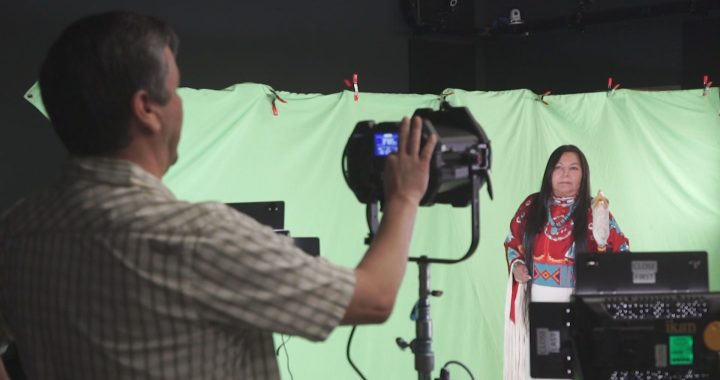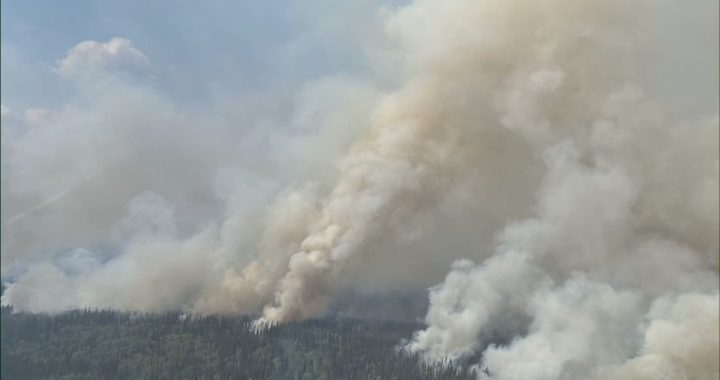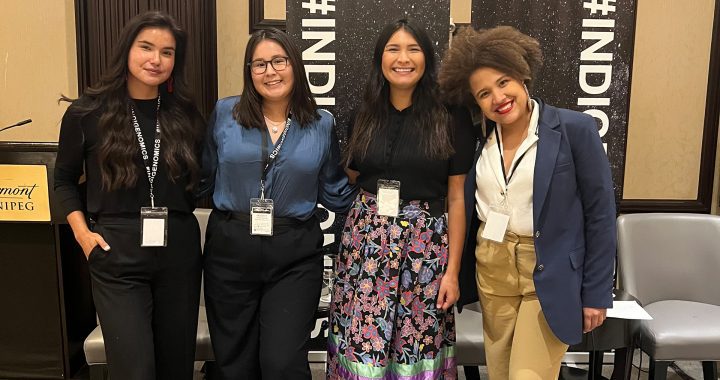They’re loved, loathed, tolerated and misunderstood. They’re rez dogs and in recent years, more and more bands are trying to address animal control issues in communities.
At the same time, amid the adopt don’t shop movement, there’s been a growing demand in Canada – particularly urban centres – to own a rez rescue.
But with that increased demand, has come many rescues popping up – all over the internet and social media, trying to feed the demand while making upwards of $600 per adopted dog.
APTN News investigative journalist Kathleen Martens has been covering this new phenomenon and says what’s often happening is non-Indigenous people and organizations are coming to communities and helping themselves to pets.
“It’s opened up this world of these rescues from the south, going to communities in the north, it’s a clash of culture, of clash of values and because of social media there’s so much judgement and mean-spiritedness, there’s hate,” she told InFocus Host Melissa Ridgen.
“It’s turned into instead of learning from and about each other and how best to help each other, into a he said/she said.”
Read some of Martens’ coverage here:
Rescue gone wrong: Pickles, puppies and a dispute over a dog
‘It is a free-for-all’: Manitoba, Ontario say they have no control over animal rescue groups
Amber Twoyoungmen knows the drill. She learned the hard way as a teen when her pooch Marley went missing from her home in Morley, Alta., just west of Calgary.
“I was hearing about people getting their animals taken so curiosity led let me to this rescue group online. I look through all their posts, I saw a picture of Marley there and I was thinking why is he on here,” she recalls.
Turns out like so many others in her community, a rescue group helped themselves to her pet who like many rez dogs, roams free.
It’s something Martens points out happens with farm dogs too yet rescue organizations haven’t turned stealing them into a profitable market.
Twoyoungmen made the mistake of reading the comments. The rescue had described Marley as unloved and abandoned and people responded with pure hate.
As a teen, she didn’t feel she could stand up to the commenters and too hurt and ashamed, she never tried to get the dog back.
But as part of the Nakoda AV Club which made a documentary called Ahomapénî : Relations and Rez Dogs.
Director Jarrett Tymen says Ahomapénî is a Nakoda word acknowledging a being’s right to exist in its own way, similar to the English concept of respect. The film explored “the different ways people think about human animal relationships on reserves and in settler dominated spaces.”
Meanwhile in Manitoba, Shellee Green moved back to her home community, Swan Lake First Nation a few years back and quickly noticed that the animal population was in need of help. Sick dogs, troublesome dogs, dogs without owners – and simply too many dogs. So she took action after one of her favorite rez dogs, a pitbull mix named Scarlette, was killed by a car.
“I’m more just an animal guardian watching over, asking people if they need to surrender their animals, if they need help with these animals,” Green says. “We’ve given out collars, we’ve given out food that when they had nothing. Scarlette’s rescue is still going, I’ve ran into a few barriers at times but I just keep going.”
Swan Lake is working on an animal bylaw and Green works with Manitoba Animal Alliance – a rescue organization that works with First Nations on their own terms, addressing animal issues how the community wants to see them addressed.
The Save Rez Dogs Facebook page helps link communities with credible rescue organizations and educates about respectful and responsible relationships between First Nations and their dog populations.












